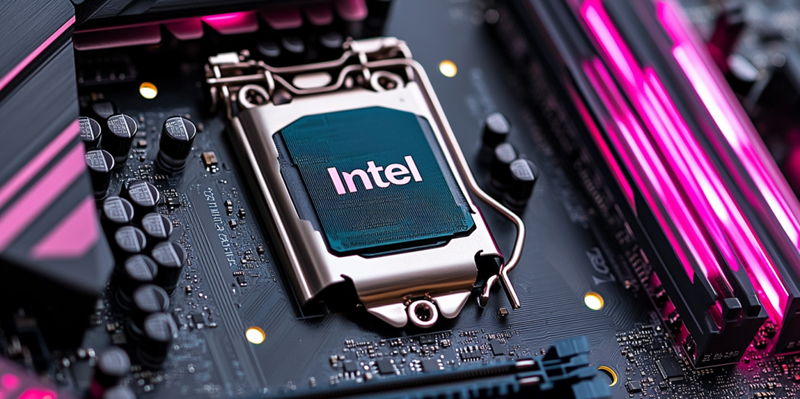As anticipation grows around the upcoming Intel Battlemage (BMG) Arc B580 desktop GPUs, speculation is rife that these next-gen products could be poised for an early December release. This buzz has been further bolstered by a recent leak in a shipping manifest, indicating the preparation of the B580 packaging. Such leaks align perfectly with previous rumors that hinted at a possible December announcement for Intel’s Battlemage GPUs. The focus is now on how Intel aims to position itself ahead of competitors AMD and Nvidia, who are expected to showcase their RDNA 4 and RTX 5000 GPU ranges at CES 2025. By possibly revealing its new lineup beforehand, Intel seems to strategize to capture the spotlight and avoid being overshadowed by the hype surrounding AMD and Nvidia’s upcoming releases.
Intel’s Strategy to Dominate the Lower-End GPU Market
The key focus of Intel’s Battlemage series is on the lower end of the GPU market—an area that has been significantly neglected by both Nvidia and AMD in recent times. Historically, the budget-friendly GPU segment has often suffered from a lack of powerful yet affordable options. Addressing this gap, Intel is working to provide consumers with reliable alternatives in the form of its new Battlemage GPUs. Particularly, the highest-tier Battlemage card is expected to feature 32 Xe cores, aiming to rival the performance of the current-gen Arc A770. With potential architectural improvements, these GPUs are set to offer enhanced desirability for budget-conscious consumers who don’t want to compromise on performance.
The strategic move by Intel is more than just about filling up the low-end GPU segment. It symbolizes a significant challenge to Nvidia and AMD’s hold on the market. By bringing affordable, high-performance options, Intel could possibly disrupt the existing market dynamics. Furthermore, the scarcity of low-cost GPUs, which has plagued gamers and other users in recent times, adds an urgency to the market for such products. Intel’s initiative, therefore, presents a ray of hope for consumers looking for cost-effective graphics solutions without sacrificing quality. With this, the company aims to create meaningful competition in the GPU space, thus benefiting consumers with more choices and better pricing.
Potential Impact on the GPU Market
There is an overarching trend of Intel’s strategic efforts aimed at capturing the budget GPU market with its affordable yet powerful solutions. As recently reported, the current scarcity of affordable GPUs from major competitors like Nvidia and AMD has left a noticeable void in the market. This void is precisely where Intel’s Battlemage series plans to make a mark. Analysts are of the view that Intel’s early reveal strategy is designed to distinguish itself from competitors and drive attention toward its new offerings, markedly influencing consumer choices.
The potential success of Intel’s Battlemage GPUs could significantly shake up the current market dynamics. If successful, Intel could very well position itself as a formidable player in the GPU arena. Consumers stand to gain from this shift, obtaining access to reliable and budget-friendly GPU options. Moreover, this move could encourage Nvidia and AMD to rethink their strategies and potentially cater more to the budget market. The competitive landscape could see a shift towards more diverse and affordable technology choices for gamers and regular consumers alike.
Long-Term Implications and Future Outlook
Intel is strategically focusing on capturing the budget GPU market with its affordable yet powerful solutions. Currently, a significant shortage of affordable GPUs from major companies like Nvidia and AMD has created a gap in the market. Intel’s Battlemage series aims to fill this gap. Analysts believe that Intel’s early reveal tactic is to set itself apart from competitors and attract consumer interest toward its new GPU offerings, which could notably influence customer decisions.
The potential success of Intel’s Battlemage GPUs could profoundly impact the current market dynamics. Should Intel succeed, it might establish itself as a significant force in the GPU sector. This would benefit consumers by giving them more access to reliable and budget-friendly GPU options. Additionally, Intel’s efforts could prompt Nvidia and AMD to revisit their strategies, possibly paying more attention to the budget market. The competitive field may shift towards offering more diverse and affordable technology options for gamers and everyday users, resulting in a more balanced and accessible GPU landscape.

